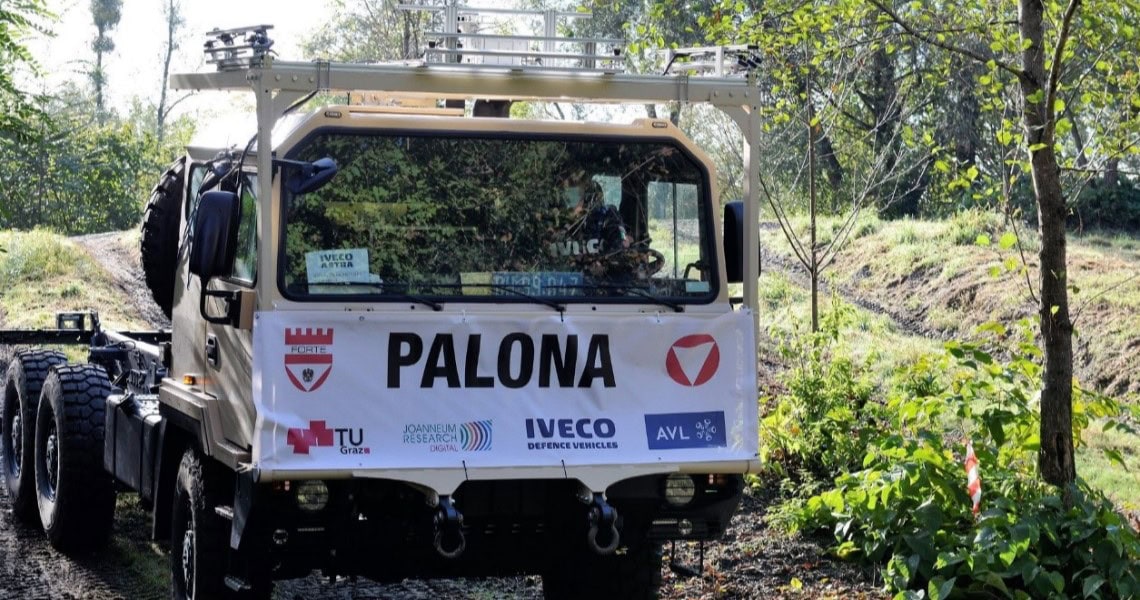- About us
- Research expertise
- DIGITAL – Institut für Digitale Technologien
- MATERIALS – Institut für Sensorik, Photonik und Fertigungstechnologien
- ROBOTICS – Institut für Robotik und Flexible Produktion
- COREMED – Zentrum für Regenerative Medizin und Präzisionsmedizin
- HEALTH – Institut für Biomedizinische Forschung und Technologien
- LIFE – Institut für Klima, Energiesysteme und Gesellschaft
- POLICIES – Institut für Wirtschafts-, Sozial und Innovationsforschung
- Business areas
- Products & services
- Research infrastructure
- Beteiligungen
- Career
- Aktuelles
- Publications
- Kontakt zu uns
PALONA
RUNNING TIME:
11/2023
—
04/2022
Total project duration:
4 Years

The project
Autonomous vehicle navigation in the civilian sector is mainly based on satellite navigation and the use of active sensors (radar and lidar). In various areas of application, however, it is necessary to be able to navigate without infrastructure and without active sensor technology. The PALONA project investigates the possibilities of passive infrastructure-free vehicle self-localization for the application "semi-autonomous convoy guidance" and navigation.
Our activities in the project
Our researchers developed a vehicle-independent sensor platform that can generate data in rough terrain exclusively with the help of purely passive sensor technology. These data will be evaluated and suitable algorithms for localization and obstacle detection for a semi-autonomous military convoy.
Research groups
Downloads
Customers
The project was funded by the German Federal Ministry of Finance (BMF) as part of the FORTE defence research funding programme.
Österreichische Forschungsförderungsgesellschaft (FFG)
Project partners
Austrian Federal Ministry of Defence
AVL
IVECO DefenceVehiclesSPA
Technische Universität Graz
Project details
The elimination of emitting sensors is very important, especially in military applications. The reception of satellite navigation signals (GNSS) can be jammed relatively easily and this poses a security challenge and requires alternative localization methods.
The Palona project investigated the feasibility of localization and obstacle detection for a semi-autonomous military convoy. The requirement here was the implementation of an approach based on purely passive sensor technology (use only of cameras and inertial sensors, but no GNSS, no radar, no LiDAR, no infrastructure). On the one hand, the logistics vehicle should automatically follow a pre-trained path repeatedly or automatically follow a lead vehicle.
Our experts have developed an innovative vehicle-independent sensor platform consisting of 8 cameras, an inertial measurement unit (IMU) and a mobile computer. Together with our partners, the data collected by the sensor platform was evaluated in a modular software framework and suitable algorithms for self-localization, relative localization in the convoy and obstacle detection were implemented and tested in military areas.
At the end of the project, the project team has shown very impressively that the camera and IMU-based localization and obstacle detection works under off-road conditions under normal lighting conditions (daylight, sunshine, clouds, light rain) with an accuracy of less than half a meter, and thus an automated follow-up of a known route is possible.
Funding organisation
Das Projekt wurde innerhalb des Verteidigungsforschungs-Förderprogramm FORTE durch das Bundesministerium für Finanzen (BMF) gefördert.
Projektbeteiligte
Related projects
SHAPING THE FUTURE, TOGETHER
JOANNEUM RESEARCH provides innovation and technology services in the field of applied research. As a research company working on behalf of various federal provinces and regions in Austria, our expertise shapes the development of our modern society and economy – sustainably, and always with a focus on people. As a multidisciplinary team working in a flexible set-up that fosters innovation, we always live up to the highest social and scientific standards.


